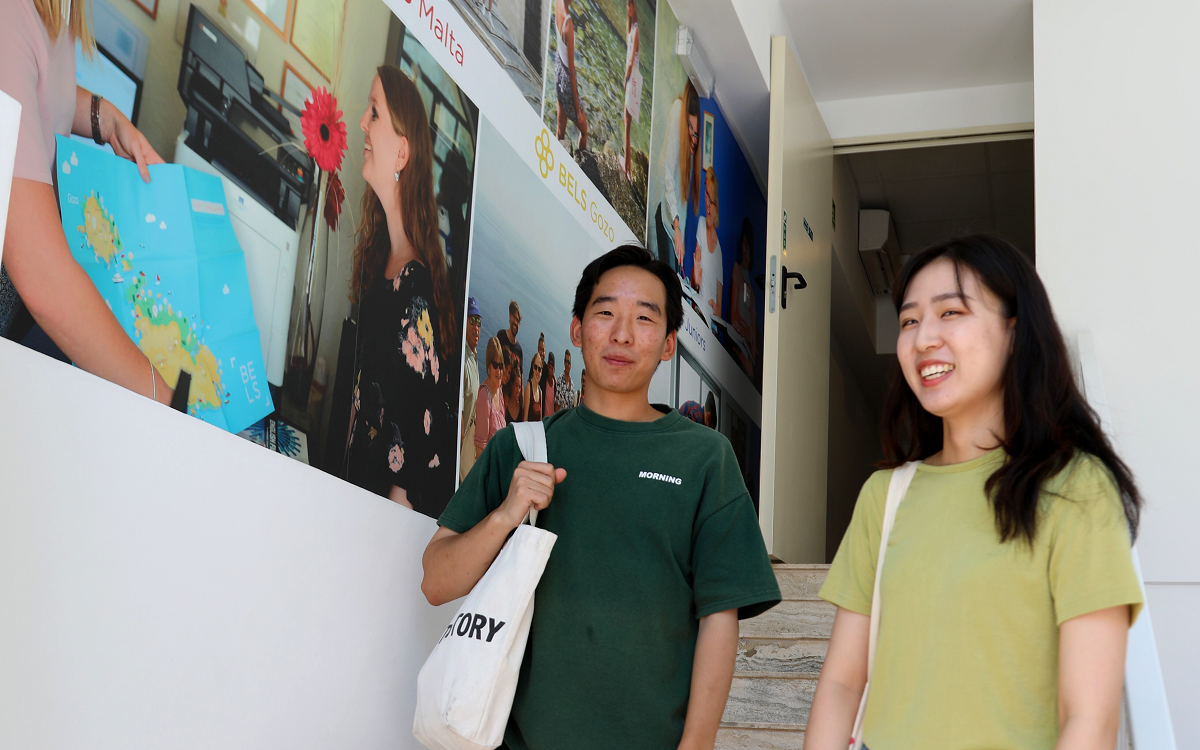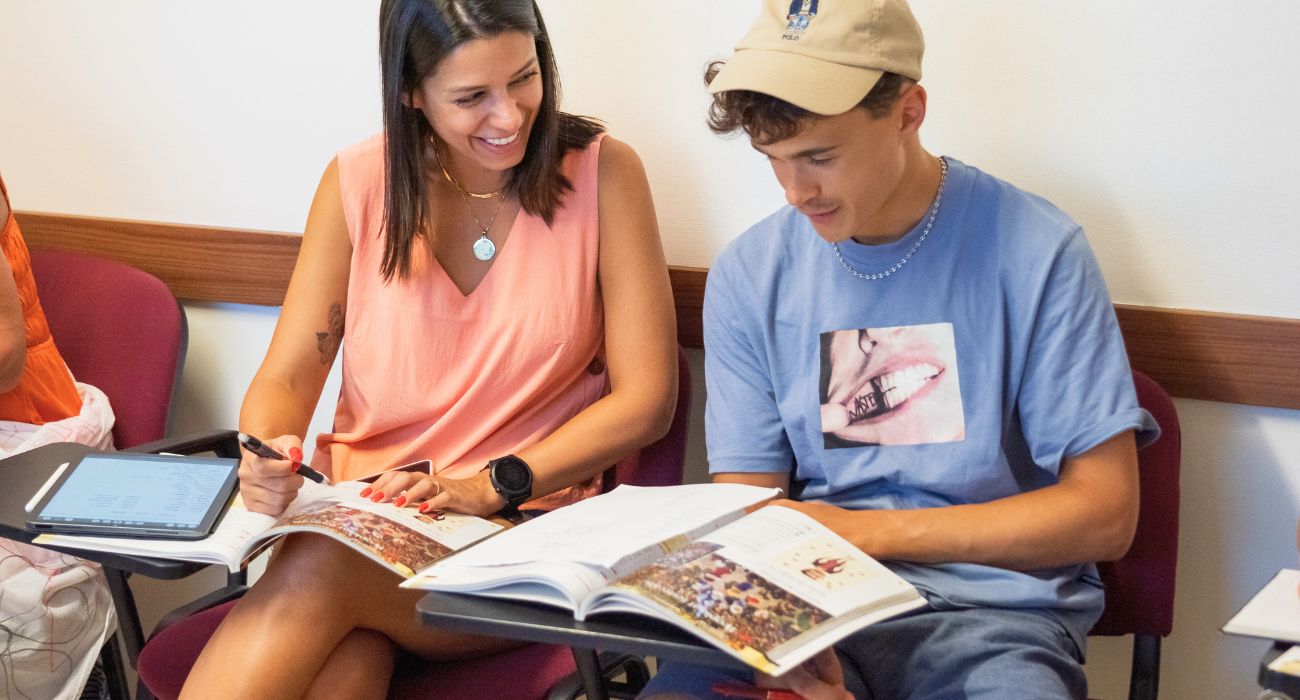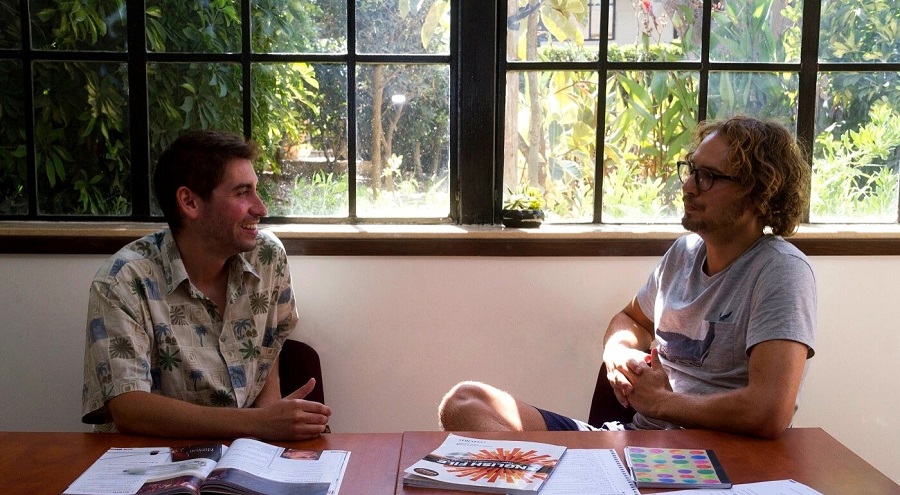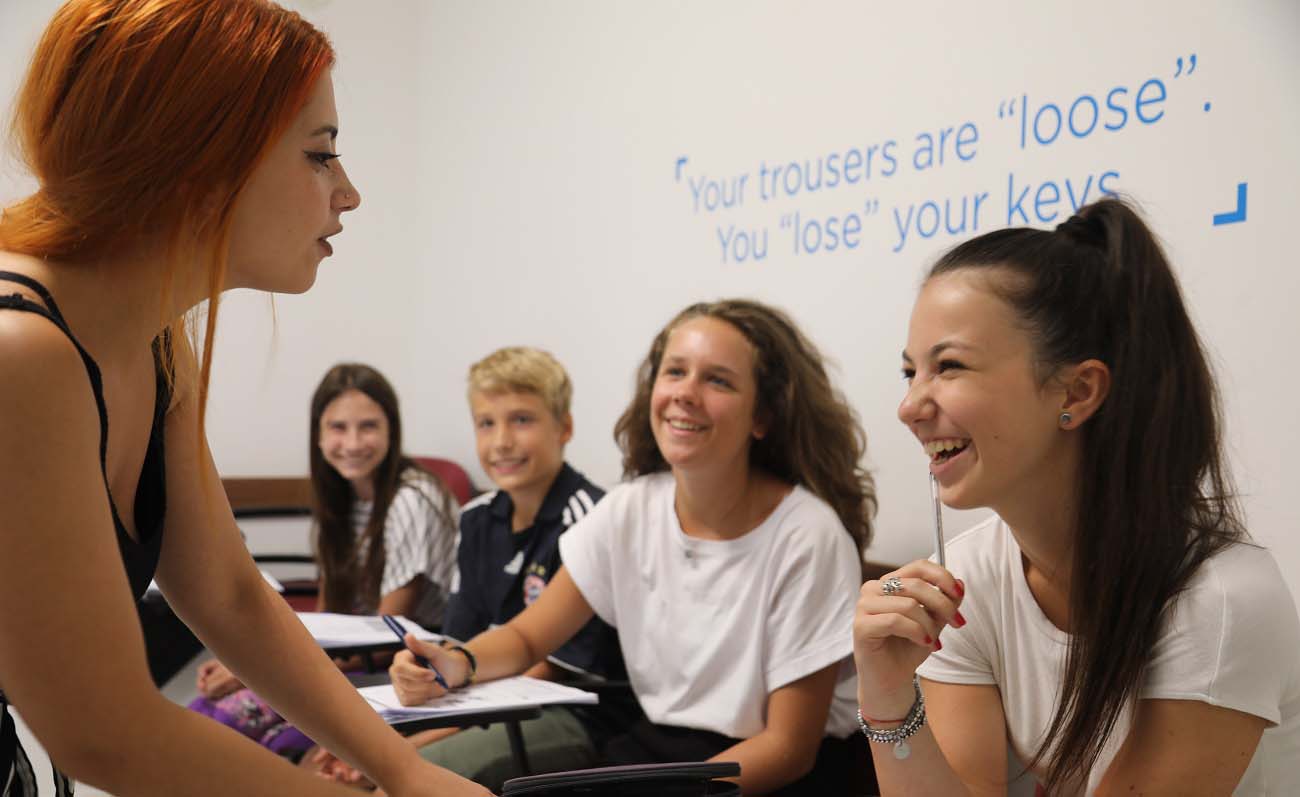How to Choose the Best English School in Malta
Thanks to its beautiful landscapes, rich culture and British influence, Malta has become a popular destination for those who want to learn English. However, with numerous schools on the islands, choosing the best English language school for your needs can be challenging. This guide provides a roadmap by highlighting ten crucial factors to consider when selecting the best English language school in Malta.

1 – Check for Accreditation and Certification
Start by ensuring that the language school is fully licensed to operate legally and is accredited by recognised monitoring boards. Accreditation ensures adherence to high-quality standards, providing a reliable benchmark for the school’s educational excellence.
The Maltese authorities take many measures to ensure that schools maintain a high-quality standard, which is why Malta has a good reputation for English schools. So, suppose the school is licensed by the ELT council, Visit Malta, or Visit Gozo. In that case, it’s a legitimate business and a trustworthy school.
Then, some accreditations and certifications go beyond the basic requirements to open a school. Always choose accredited schools with national and international certification for better quality assurance. This is a sure-fast sign of a top English school in Malta. This includes FELTOM on a national level, and there are ALTO, Quality English and EAQUALS internationally. The more the school has, the better the school.
Why is this important? Firstly, it ensures you’re dealing with a trustworthy school since they must conduct intensive investigations whenever accreditation is required. It’s also renewed annually, which means the quality is maintained. It also involves teacher qualifications, class sizes and building facilities.
Browse our licenses and accreditation at BELS Malta and Gozo Language schools.
2. Qualified English Teachers
The backbone of any language school is its teaching staff. Look for highly accredited schools, as we mentioned previously, since this ensures that teachers are qualified. The more serious schools will also ensure teachers are qualified beyond the minimum requirements and undergo regular professional development courses. Other factors are the years of experience and how they have been with the same school.
How can you determine this? Look at the school’s website or social media pages and check if they post about their teachers. Also, read student reviews carefully to see what others have said about their teachers.
At BELS, we’re proud to say our teachers are the heart of our school. The majority of our teachers have a CELTA, DELTA or equivalent certification. Several teachers have been with us for years and regularly invest in their professional development.

3. Ask about the Class Size and Student-to-Teacher Ratio
Smaller class sizes facilitate personalised attention and active participation. The number of students per class varies from school to school, ranging from a maximum of 12 to 25.
When comparing prices, check the student-to-teacher ratio to gauge the level of interaction you can expect in class.
At BELS, our standard classrooms have a maximum of 12 students and an average of 8 for adults. Mini-groups have a maximum of 6 students and an average of 4 per class.
4. Ensure it offers a Comprehensive Curriculum
Even when schools are highly accredited, they have varied methods of course planning.
Some schools follow a structured plan with a strategic learning aim – this ensures you cover all language skills (listening, speaking, reading, and writing) across all areas of the language (grammar, vocabulary, phonology, discourse).
Other schools allow teachers to choose random topics daily, which may not provide a well-rounded educational experience and can include repetition when you change teachers.
A well-structured program is vital for personalised and effective learning – so be sure to ask if the school follows a coursebook and plan.
At BELS, we offer a comprehensive curriculum that includes real-world content based on renowned publications from National Geographic. Our curriculum comprises traditional books, interactive tasks on our boards, songs, videos, projects, and discussion tasks. We have also introduced virtual reality sessions to further immerse students in the real-world use of English.

5. Progress Tracking and Feedback
It’s essential to check if the school has a system for tracking your progress and providing feedback promptly. This ensures that you receive constructive guidance and can measure your advancement effectively.
At BELS, we conduct weekly tests on Friday afternoons to evaluate the lessons taught that week. For students studying longer, we conduct detailed assessments and offer change-of-level tests upon request. Additionally, we allow students to schedule feedback sessions with the director of studies. We aim to help you achieve your learning objectives in a friendly and supportive environment.
6. Ask about the Student Nationality Mix
The people you study with can make or break your own educational experience. For example, suppose you’re only surrounded by people of the same nationality. In that case, it’s unlikely that you’ll get to speak much English. But when your school has a mix of nationalities, everyone naturally converses in English, even if only a few people speak your native language. This way, everyone can feel included and connected.

7. Assess the School’s Facilities
Access to diverse resources, including multimedia tools, libraries, and technology-supported learning, enhances the learning experience. Modern facilities also contribute to a supportive environment for language practice.
Look at the English Language School’s facilities listed on their site and authentic photos taken there. You can check the classroom sizes, lighting, cleanliness and whether they have interactive boards.
Be aware that some schools can use stock photos in their marketing material – so look for images that show the company’s branding, analyse social media pages, video tours of the school, and Google review photos.
8. See how the Student Residences Work
Suppose you are planning to travel to Malta to learn English. In that case, it’s essential to consider the quality of your accommodation carefully. Ask the school to provide photos and a detailed description of their accommodation options. Remember to check whether bills are included in the total provided.
It’s also important to inquire about the maximum number of stents in each apartment or room. Some schools have hostels as their accommodation resource.
To verify the accommodation address, you can look it up on Google Maps. It’s essential to ensure that emergency numbers and help are available in case of any issues. In case of emergency.
9. Research Student Reviews and Testimonials
When it comes to a school’s reputation, what they say about themselves can be positive, but it’s important also to consider what their students have to say. Checking reviews from past students can give you a better understanding of the school’s overall experience. If a student is willing to leave a testimonial or a video review about their time at the school, they likely had a positive and memorable experience. You can find these reviews on platforms like Google Reviews or independent websites. Analysing overall satisfaction levels can help you determine the school’s effectiveness.
10. Contact the School Directly for a Better Understanding of their Personality and Approach
There’s no better way to review how a school treats and values its clients than by speaking with them directly. Me away from travel agents, and write to schools yourself. Sak with the r representatives and see who gives the most attention and personalisation in their communication.
If you wish to start planning a study trip, email us at [email protected], and we’ll connect you with a language travel consultant.
Learn English with BELS
With over 25 years of experience, BELS is a leading English school on the island, with the best reviews and accreditation in Malta and Gozo.
Find a suitable course


